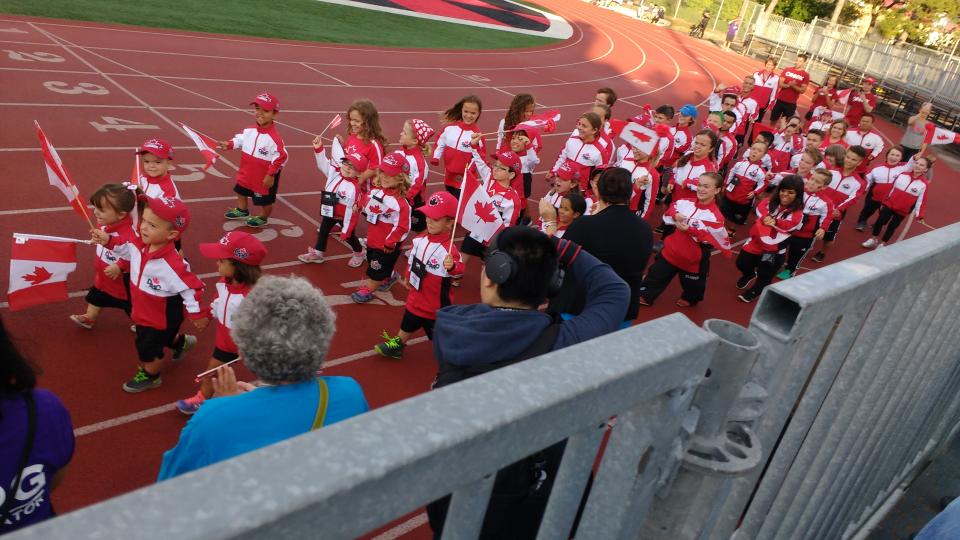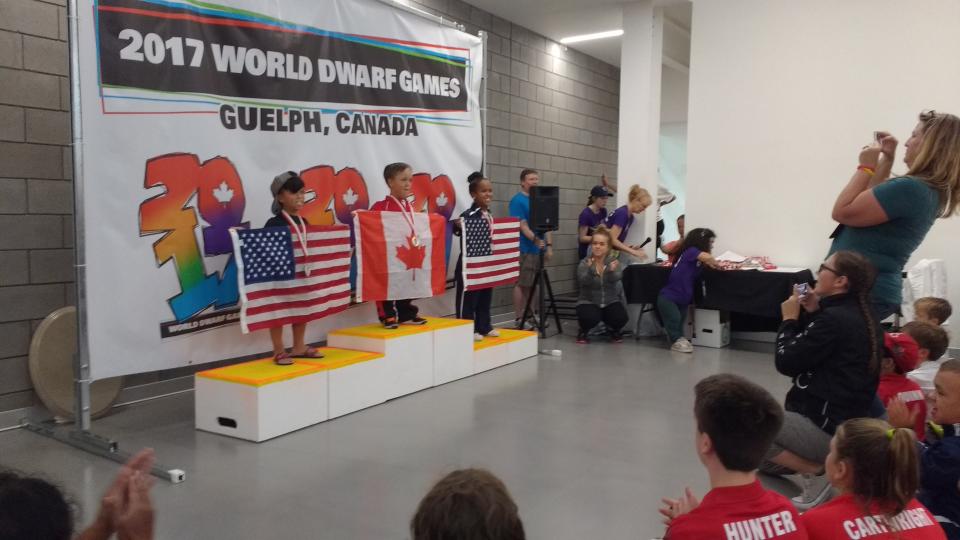World Dwarf Games creates level playing field

The World Dwarf Games have come to Canada.
Athletes with dwarfism from around the globe have converged on Guelph, Ontario for the seventh World Dwarf Games, an Olympic-style competition which features basketball, badminton, powerlifting, track and field, swimming, soccer and more.
The University of Guelph is playing host to the week-long event which runs through August 12, but preparations have been two years in the making. After registration opened in January, a kick-off event was held at Toronto’s Variety Village Recreation Centre to raise funds and awareness for the competition.
“The World Dwarf Games are important because the event allows athletes with dwarfism to compete eye to eye with opponents and teammates on a field or in a forum that they cannot get anywhere else,” says Allan Redford, president of Little People of Ontario and the Dwarf Athletic Association of Canada, the organization responsible for putting together Team Canada.
Jameel Kassam, 19, played rep soccer with average size athletes all the way through high school, but he says there’s just something special about playing with people your own size.
“When I was playing rep soccer with average size guys I played a midfield position where I didn’t get tackled as much, but coming to the World Dwarf Games I can play how I want and push back a little bit more.”
Jameel helped Canada’s soccer team to a third-place finish four years ago in Lansing, Michigan. The nation’s 25 athletes took home a 65-medal haul that summer in their first opportunity to compete under one flag. Prior to that, Canadian athletes joined international hybrid teams or represented themselves individually.
“Michigan was just so close to the Canadian border that the organizers thought we really should have our own team. Fast forward four years and now we have the World Dwarf Games in Guelph, in our own country. We’re hoping to do better than those 65 medals and we’re really excited about it,” says Redford.

Going Global
While the World Dwarf Games is exciting for every Canadian athlete with dwarfism, it’s not usually the biggest event on the calendar for those in the community. That would be the annual Little People of America [LPA] conference, which happens in a different U.S. state every year.
Along with social events, keynote speakers and medical check-ups, the conference offers sports through its annual Dwarf Athletic Association of America [DAAA] tournaments occurring on the same annual weekend. It was actually at the DAAA tournament at the LPA conference in Chicago in 1993 that the World Dwarf Games was born.
That was the year LPA decided to invite athletes from around the world, and Arthur Dean of Stockport, England (a little person himself) traveled with his 15-year-old daughter Nicola, so that she could compete with kids her own size.
“At home she was going to swim meets and not getting placed or getting medals at all, so I took her across the pond to see if she could medal and she came home with six medals,” says Dean.
Seeing the confidence the achievement fostered in her, and what a great time the other athletes they brought were having, Dean decided this event should happen more often. He soon became the president of the International Dwarf Athletic Federation, which is the governing body that oversees the games’ operation and evaluates the various contenders for host city.
“Our board visited Guelph in April. We were really impressed with the venue and we were made to feel that everything would be going smoothly and I think it has throughout the year,” says Dean.
But Canada almost didn’t get to host the games at all.
Holland’s Loss is Canada’s Gain
When Heather Anderson’s son John was feeling depressed about his short stature, she encouraged him to join the DAAA tournament at the 2007 LPA Conference in Seattle, and saw quite the transformation.
“These kids are used to being treated as something different. In the sense that maybe kids won’t push them and kids don’t know how to react to them, even though their classmates get used to it pretty quickly. But all of the sudden I saw them get together at DAAA and their just guys – bumping each other and doing the things guys do – and I thought, ‘Oh my god! This is so much more of a normal interaction.’ They don’t stand out, so they can be who they are and it has nothing to do with their stature,” she says.
She wanted to find a way to give other kids that feeling, so when another parent approached her about putting a bid together for the 2017 World Dwarf Games she jumped at the chance. Heather partnered with Frank Cain – the University of Guelph’s assistant faculty manager and business development officer – to pull it off.
“We put this bid document together — I was assured we wouldn’t get it, and Holland did get it — which made sense geographically, since the prior games had been in North America, but then they decided they couldn’t do it, so in mid-July 2015 at the LPA conference in St. Louis, I got the call,” says Anderson.
Anderson and the rest of the organizers scrounged up as many donations, volunteers and participants as they could. If you’d like to lend a hand in the form money and manpower, visit www.worlddwarfgames2017.org for more information.

 Yahoo Sports
Yahoo Sports 


